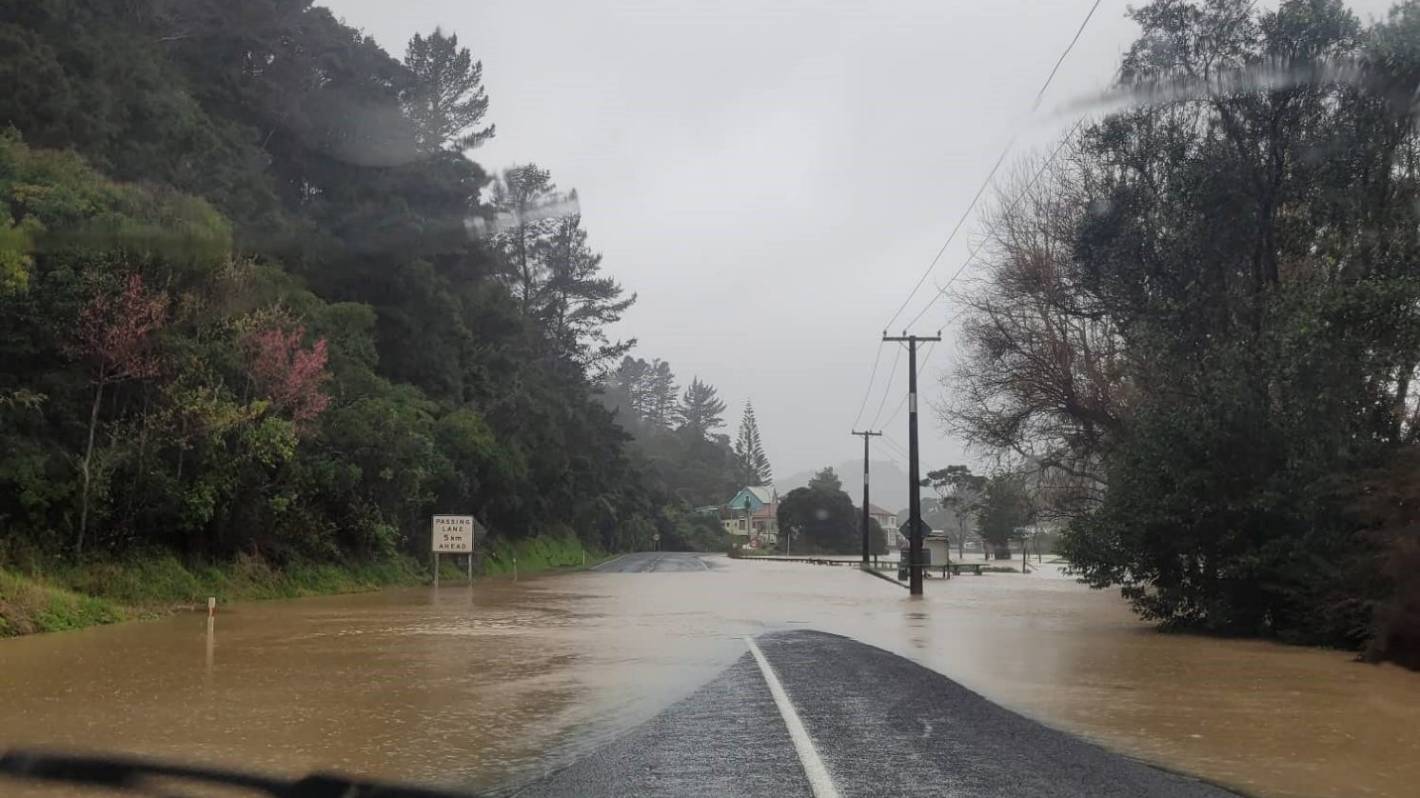Several homes have been evacuated in New Zealand’s northernmost town, Kaitāia, on Thursday night, according to Civil Defence Northland.
Kaitāia is still cut off from the two major highways SH1 and SH10 after flooding, slips, and fallen trees.
The worst of the rain has passed for Northland after it was hit with more than a month’s worth of rain in 24 hours on Thursday, according to MetService.
The downpour shut down state highways, sparked severe flooding, knocked out power for more than 600 homes and cut off New Zealand’s northernmost town, Kaitāia.
READ MORE:
* Live: Storm spreads north with 16 weather warnings and watches in place
* No weather respite after flooding and swollen rivers cause devastation
* Recap: Nelson residents spending another night out of their homes, more heavy rain ahead
Civil Defence Northland emergency spokesperson Zach Woods said a handful of families in low-lying Allen Bell Drive and nearby Parkdale Cres evacuated at around 6pm on Thursday.
“We are asking residents to delay any trips they have until the water levels have subsided,” he said.
Awanui river rose to high-levels last night, but had not breached its banks. Water levels were subsiding, Woods said.
“There’s still heavy rain in Northland, but it has eased from what it was yesterday,” MetService meteorologist Stephen Glassey said.
MetService has a heavy rain warning in place for Northland until 11am and in Auckland until 7am.
Three areas on SH1 and two areas on SH10 remain closed on Friday morning due to flooding, slips, and fallen trees.
Waka Kotahi New Zealand Transport agency is asking commuters to avoid unnecessary travel in the Far North.
Kerikeri was the worst hit with 172mm of rain in 24 hours. Kaitāia saw 101.4mm of rain and Whangārei airport had 32.4mm.
“Thursday was the wettest day the Far North has seen all year,” Glassey said.
Antonia Cathcart/Stuff
Northland’s Kaeo River Bridge on SH10 has flooded after almost 100mm of rain on Thursday.
Meanwhile, Auckland has hit record August temperatures for the third night in a row.
On Thursday night, the lowest temperature was 16.1C – the warmest minimum temperature for an August night that Auckland has ever seen.
Glassey said the heavy rainfall and warm nights are linked.
“The air coming down from the tropics is warm and carrying a lot of moisture. That’s bringing both the warm temperatures and the potential for rain,” he said.




